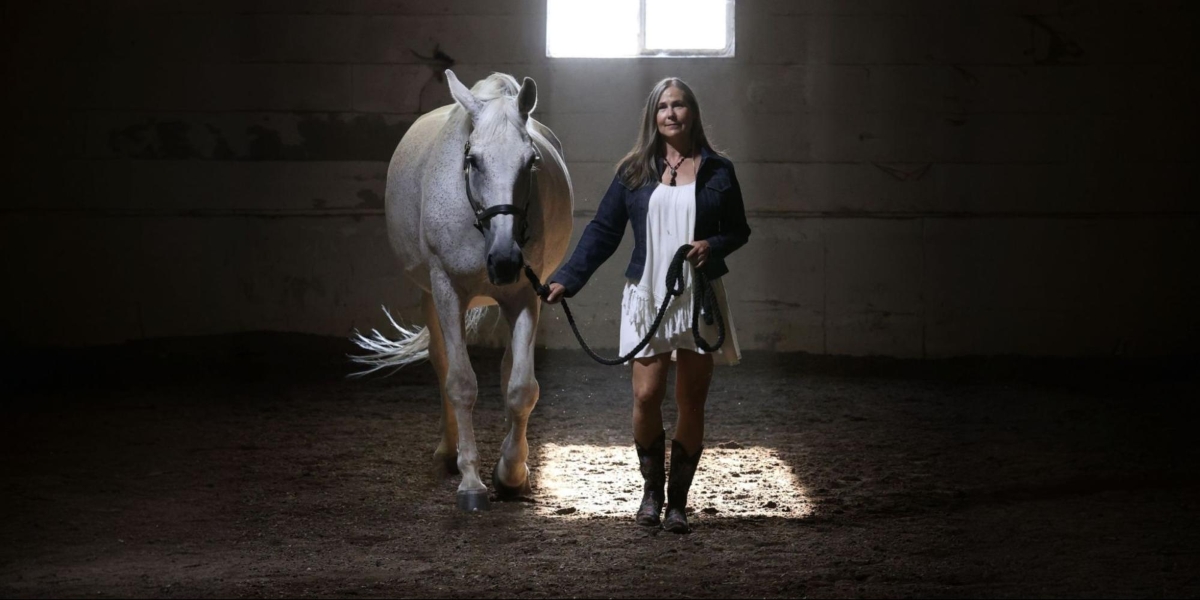By: Matt Emma
Modern culture often glorifies productivity and performance, measuring success by how much we accomplish and how fast we get there. We’re frequently encouraged to believe that if we just try harder or work longer hours, we’ll get ahead. For many high achievers, personal development has become an ongoing pursuit. Nowadays, there’s a course for everything: mindset, habits, leadership, and goal-setting. While these tools can be helpful, they often address symptoms instead of the root causes, leaving us feeling like we’re spinning our wheels instead of creating the success and fulfillment we seek. Yet these efforts, while well-intentioned, may sometimes overlook a deeper truth: what holds us back may not always be ours to begin with. That’s where Lisa Thomas comes in.
Meet Lisa Thomas: A New Paradigm for Transformation
Lisa Thomas is an epigenetics master, TEDx speaker, and founder of Epigenetics for Global Impact. Through her pioneering work, she helps people uncover what she refers to as emotional DNA: deep-seated patterns passed down through generations that can influence subconscious behavior and how we think, feel, and act.
Lisa’s work centers on epigenetics, the study of how behaviors and environmental factors can lead to changes in gene expression. Research suggests that experiences, particularly those involving stress or trauma, may contribute to epigenetic changes that not only affect our biology but can also be passed on to future generations. One interesting study published in PubMed Central demonstrated that early-life stress can result in changes that affect emotional regulation and stress response in the next generation (source).
Lisa explains that viewing struggles through an epigenetic lens can be enlightening, helping people notice emotional patterns they’ve inherited rather than created. In a world that often values productivity above all, it’s easy to blame ourselves when we find ourselves repeating the same patterns. But when we recognize how generational stress might be influencing those behaviors, we create space for self-compassion, deeper healing, growth, and fulfillment. This shift in perspective can significantly influence how we approach success, especially in a culture that equates worth with output.
Lisa Thomas Explains Why More Isn’t Always the Answer
Our culture frequently tells us that the key to success is to push harder. But this constant striving can sometimes lead to exhaustion, imposter syndrome, and even a sense of emptiness when goals are finally reached. For many, the real barrier isn’t a lack of effort or motivation but a lack of awareness about what’s driving the need to keep pushing in the first place.
Lisa encourages a different kind of question: What if your motivation to overwork, overextend, or constantly prove yourself stems from a pattern that was passed down instead of consciously chosen?
Burnout as a Symptom, Not a Problem
Burnout is often framed as a time management issue or a side effect of ambition. But Lisa sees it from a different perspective. “Burnout isn’t always about having too much to do,” she says. “It’s often about what you believe you have to do in order to feel worthy, safe, or enough.”
Take, for example, someone who consistently over-delivers at work. No matter how much recognition they receive, it often never feels like enough. Lisa helps individuals trace patterns like this back to earlier generations, sometimes to ancestors whose survival or acceptance depended on self-sacrifice. Understanding the emotional lineage behind these behaviors can help people release them.
What Science Is Starting to Show
Lisa’s work is grounded in the emerging field of behavioral epigenetics, which offers insights into why generational trauma healing is becoming a more widely discussed topic.
In one study from Emory University, mice conditioned to associate a specific scent with a mild shock passed on a fear of that scent to their offspring, even though the offspring never experienced the shock themselves (source).
In another example, Yale School of Medicine released a study in early 2025 showing that when parents—especially mothers—experienced war trauma, their children displayed biological differences in how their bodies regulate stress and aging, even if those children were raised in safe, stable environments. This research prompts a powerful question: What invisible stories are we carrying that shape how we show up in the world? Lisa’s emotional DNA clearing process supports deeper emotional healing without blame.
Noticing When Something Deeper Might Be at Play
How do you know if deeper patterns are influencing your success? Lisa encourages people to look for patterns that continue repeating, even after they’ve tried all the usual solutions.
These might show up in everyday life as:
- Feeling guilty when you rest, even though you logically understand the need for it
- Saying yes to things you don’t want to do because the discomfort of saying no feels overwhelming
- Undercharging, over-delivering, or taking on more work than you can realistically handle
- Reaching big milestones yet still feeling undeserving or anxious
- Getting stuck in loops of overthinking, caretaking, or avoiding conflict
Lisa Thomas offers an opportunity to explore whether old emotional patterns—learned, inherited, and practiced over time—might be shaping how you show up today.
Healing Without Shame
Lisa explains that the productivity trap can sometimes act as a form of self-protection, especially if earlier generations equated safety, acceptance, or survival with being useful. But once those circumstances are no longer present, continuing the pattern can lead to depletion. “When you realize the pressure you feel isn’t entirely yours, it creates space,” Lisa says. “Space to choose a new belief. Space to ask what success really means to you.”
This awareness encourages emotional healing and helps break subconscious patterns. In her practice, Lisa offers her clients a space to pause, reflect, and reconnect with who they are beneath the pressure.
What’s Next for Lisa Thomas
As conversations about burnout, balance, and mental health become more prominent, Lisa’s work couldn’t be more timely. She believes we are on the verge of a new era—one where success is no longer defined solely by how much we can do, but by how deeply we understand ourselves. “You don’t have to keep proving yourself,” Lisa says. “You don’t have to keep carrying what was never yours. There’s another way.”
Lisa Thomas, the founder of Epigenetics for Global Impact, offers a meaningful invitation for high achievers to simply be, and from that place, create the kind of success that doesn’t compromise well-being.
Disclaimer: The information presented in this article is for informational purposes only and should not be construed as medical, psychological, or professional advice. The views expressed by Lisa Thomas are based on her personal expertise and experiences in the field of epigenetics, and the concepts shared may not apply to everyone. Readers are encouraged to seek personalized guidance from qualified professionals before making any significant lifestyle or health decisions. The article does not claim to diagnose or treat any health conditions and is not intended to replace professional care or treatment.









